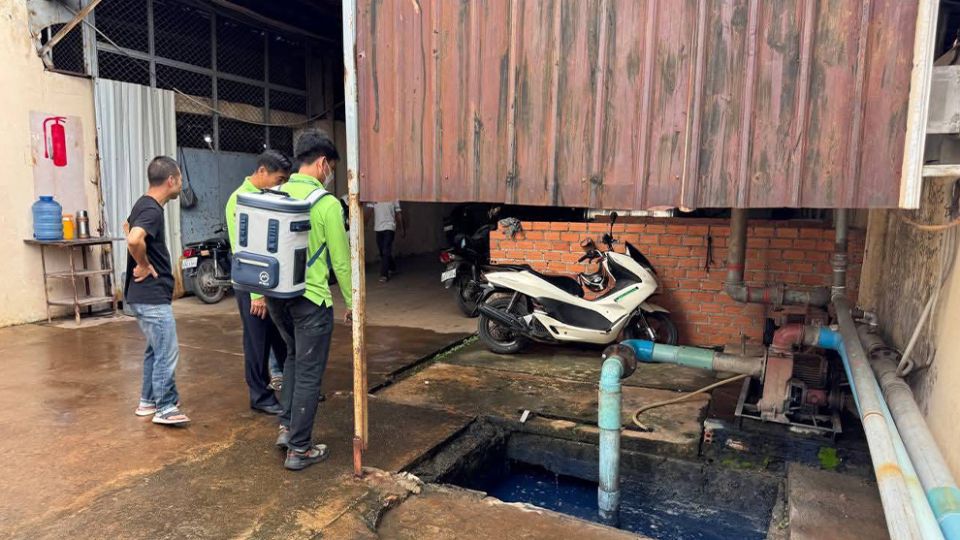August 29, 2025
PHNOM PENH – A total of 52 companies and factories were subjected to legal measures by the Ministry of Environment during the first half of 2025. These measures included fines, correction orders, and in some cases, a complete suspension of production activities.
The measures were taken after it was determined that these companies had discharged untreated wastewater, harming the environment and affecting the livelihoods of local communities.
Minister of Environment Eang Sophalleth emphasised that the fines are not intended as revenue collection, but to force companies to stop any activities that threaten public health.
The minister shared his comments while chairing an August 27 meeting, held to review the ministry’s performance in the first half of the year and set its direction for the second half.
“Some polluted so heavily that we required them to pay compensation and clean up the water. Very heavy pollution. No exceptions. The punishment must be severe to deter other companies. If others follow, they too will face fines and pay compensation at the heaviest level,” he said.
These measures, he added, are not to take money but to ensure pollution does not continue. If it continues, water sources will no longer be clean, and public health will suffer.
“For example, if just one litre of polluted water enters our clean water system, how many people will fall ill? How much will it cost to treat them? The damage is severe — and if it leads to a loss of life, then human life is more valuable than anything else. No amount of money can buy it back. Fines alone are not enough,” he said.
Sophalleth noted that burning fabric waste poses hazards similar to burning plastic, and risks serious harm to both the environment and human health. The ministry is enforcing strict measures to prevent environmental pollution, improve air quality and promote public awareness of industrial cleanliness.
He stressed that the ministry will continue to strictly enforce the law, while also strengthening staff capacity, using drones and other modern technologies to manage natural resources.
Additionally, the ministry is encouraging tree planting.
The minister explained that in 2024, 1.3 million tree saplings were distributed free of charge to the public under the “Ponlork Baitong” campaign. By August 2025, more than 2.3 million saplings had been distributed.
To ensure sustainable management of natural resources, the ministry is also promoting improvements in local community livelihoods through eco-tourism initiatives.


